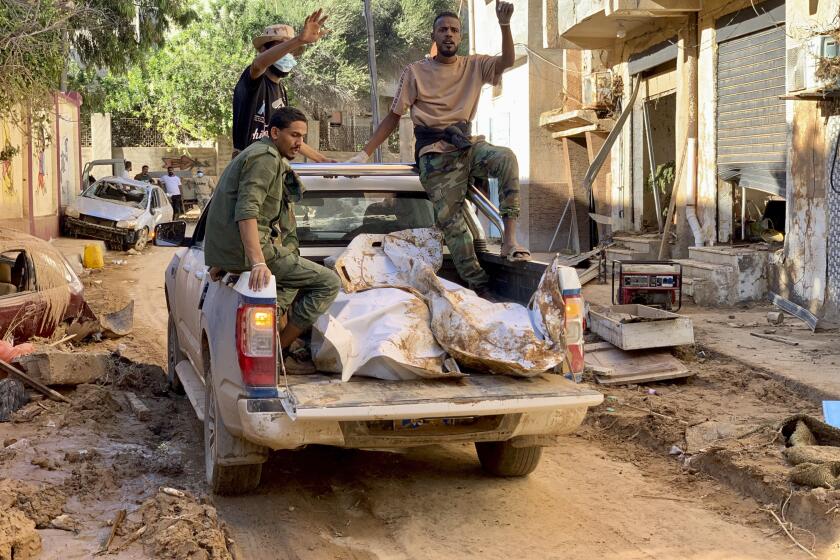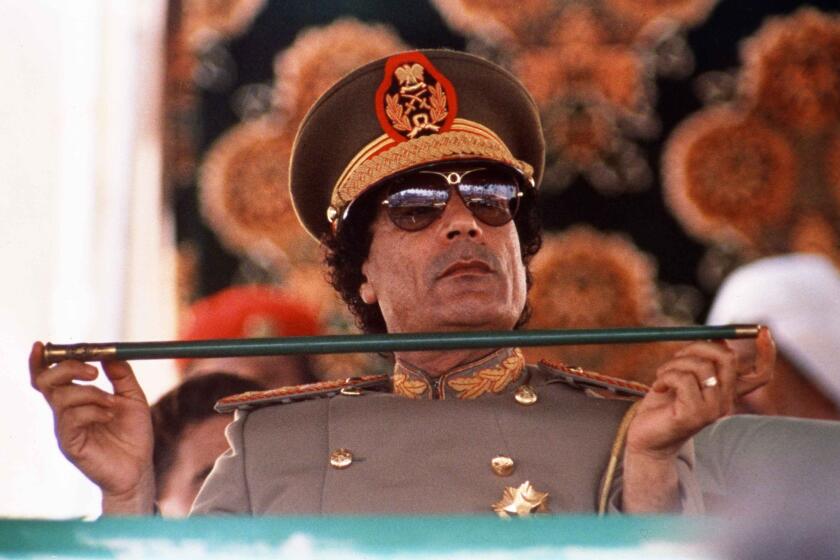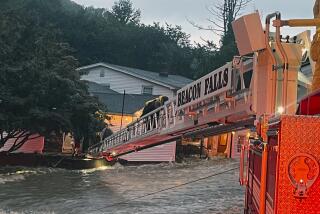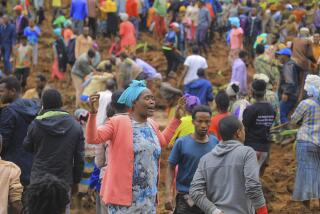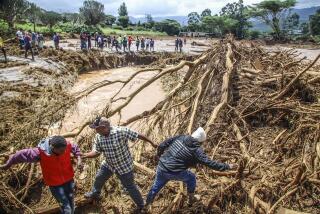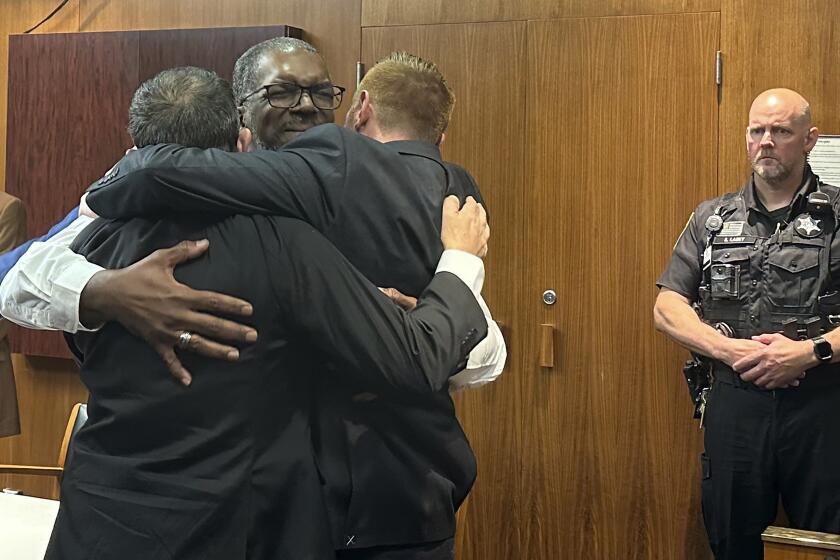Libya investigates dams’ collapse after a devastating flood last weekend killed more than 11,000
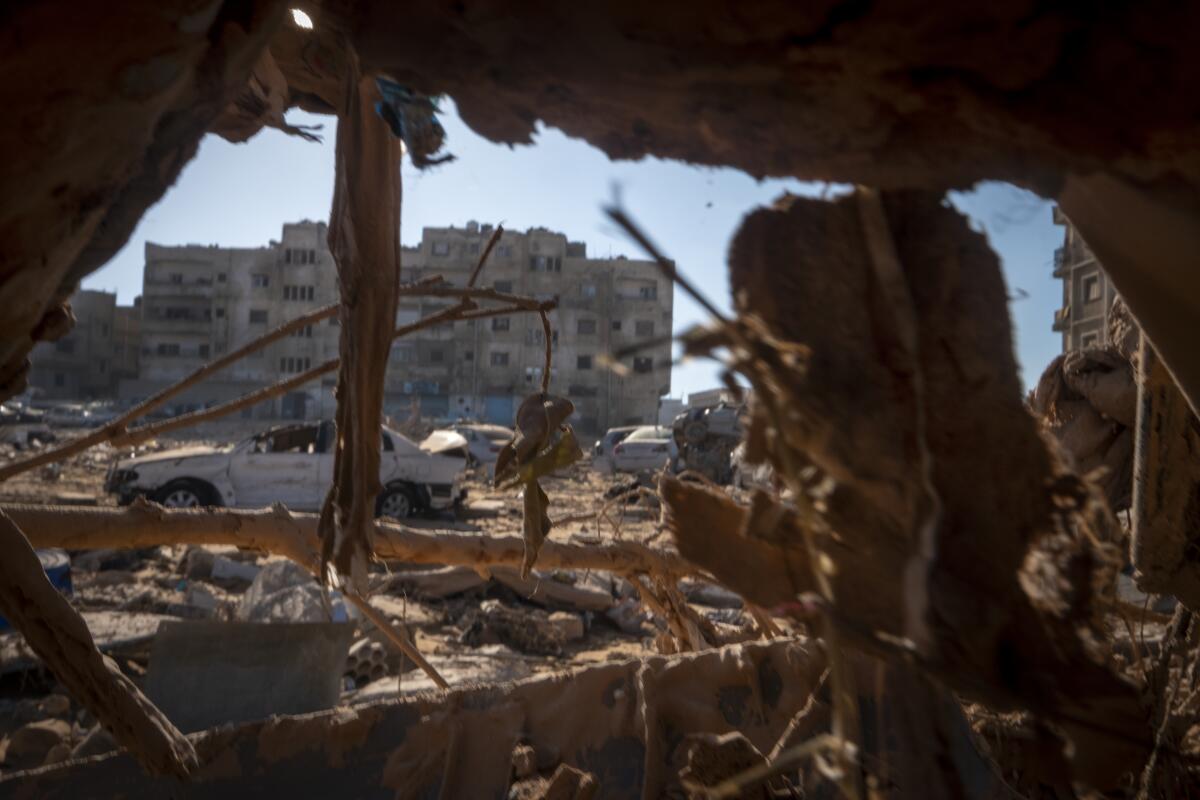
Libyan authorities have opened an investigation into the collapse of two dams that caused a devastating flood in a coastal city as rescue teams searched for bodies Saturday, nearly a week after the deluge killed more than 11,000 people.
It’s unclear how such an investigation can be carried out in the North African country, which plunged into chaos after a NATO-backed uprising toppled longtime dictator Moammar Kadafi in 2011. For most of the last decade, Libya has been split between rival administrations — one in the east, the other in the west — each backed by powerful militias and international patrons.
One result has been the neglect of crucial infrastructure, even as climate change makes extreme weather events more frequent and severe.
Heavy rains caused by Mediterranean Storm Daniel caused deadly flooding across eastern Libya last weekend. The floods overwhelmed two dams, sending a wall of water several feet high through the center of Derna, destroying entire neighborhoods and sweeping people out to sea.
More than 10,000 people are missing, according to the Libyan Red Crescent. Six days on, searchers are still digging through mud and hollowed-out buildings, looking for bodies and possible survivors. The Red Crescent has confirmed 11,300 deaths so far.
With a death toll that has surpassed 11,000, recovering the bodies of flood victims in Libya on both land and sea has become an urgent problem.
Claire Nicolet, who heads the emergencies department of the Doctors Without Borders aid group, said that rescuers found “a lot of bodies” on Friday and were still searching.
“It was a big number ... the sea is still ejecting lots of dead bodies unfortunately,” she said.
She said major aid efforts were still needed, including urgent psychological support for those who lost their families. She said burying bodies remains a significant challenge, but there has been progress in coordinating search-and-rescue efforts and the distribution of aid.
Authorities and aid groups have voiced concern about the spread of waterborne diseases and shifting of explosive ordnance from Libya’s recent conflicts.
Haider Saeih, head of Libya’s center for combating diseases, said in televised comments Saturday that at least 150 people had suffered from diarrhea after drinking contaminated water in Derna. He urged residents to drink only bottled water, which is being shipped in as part of relief efforts.
In Morocco, an earthquake left thousands dead. In Libya, floods washed neighborhoods away. But lifesaving help is snarled in politics and rivalries.
Libya’s general prosecutor, Sediq Sour, said that prosecutors would investigate the collapse of the two dams, which were built in the 1970s, as well as the allocation of maintenance funds. He said prosecutors would investigate local authorities in the city, as well as previous governments.
“I reassure citizens that whoever made mistakes or negligence, prosecutors will certainly take firm measures, file a criminal case against him and send him to trial,” he said at a news conference in Derna late Friday. He said the inquiry will include investigators from different parts of the country.
Such an inquiry would face major obstacles given Libya’s lingering political divide, even as the devastation brought a rare moment of unity, with Libyans on both sides rushing aid to Derna.
Jalel Harchaoui, an expert on Libya at the London-based Royal United Services Institute for Defense and Security Studies, said that an investigation could pose “a unique challenge” to judicial authorities, since it could lead to the highest ranks of leadership in eastern and western Libya.
Later Saturday, a local television station reported that Derna’s mayor, Abdel-Moneim Ghaithi, was suspended pending an investigation into the disaster, according to a government decree dated Thursday.
Ahmed Amdour was appointed acting mayor for the flood-stricken city, the station said.
Erratic and mercurial, he fancied himself a political philosopher, practiced an unorthodox, deadly diplomacy and cut an at times cartoonish figure in robes and sunglasses, surrounded by female guards.
Since 2014, eastern Libya has been under the control of Gen. Khalifa Haftar and his self-styled Libyan National Army. A rival government, based in the capital, Tripoli, controls most national funds and oversees infrastructure projects. Neither tolerates dissent.
“The key challenge to a thorough investigation is the Haftar coalition’s long-standing behavior; its historic lack of accountability writ large could obstruct the unearthing of truths,” Harchaoui said.
In Derna on Friday, Haftar promised promotions to all military personnel involved in the relief efforts.
Local officials had issued storm warnings and on Sept. 9 ordered residents to evacuate coastal areas in Derna, fearing a surge from the sea. But there was no warning about the dams, which collapsed early Monday as most residents were asleep in their homes.
It’s Ramadan in Tripoli, and come midnight the streets around the Kabir public garden are a melee of bumper-to-bumper traffic.
A report by a state-run audit agency in 2021 said the two dams hadn’t been maintained despite the allocation of more than $2 million for that purpose in 2012 and 2013.
A Turkish firm was contracted in 2007 to carry out maintenance on the two dams and build another dam in between. The firm, Arsel Construction Co. Ltd., said on its website that it completed its work in November 2012. It didn’t respond to an email seeking further comment.
Local and international rescue teams were meanwhile working around the clock, searching for bodies and potential survivors in the city of 90,000 people.
Ayoub said that his father and nephew died in Derna on Monday, a day after the family had fled flooding in the nearby town of Bayda. He said that his mother and sister raced upstairs to the roof, but the others didn’t make it.
“I found the kid in the water next to his grandfather,” said Ayoub, who only gave his first name. “I am wandering around and I still don’t believe what happened.”
Sour, the top prosecutor, called on residents who have missing relatives to report to a forensic committee that works on documenting and identifying retrieved bodies.
Authorities have restricted access to the flooded city to make it easier for searchers to dig through the mud and hollowed-out buildings for the thousands of people still missing. Many bodies were believed to have been buried under rubble or swept out to sea, they said.
The storm hit other areas in eastern Libya, including the towns of Bayda, Susa, Marj and Shahat.
Tens of thousands of people have been displaced in the region and took shelter in schools and other government buildings.
Dozens of foreigners were among those killed, including people who had fled war and unrest elsewhere in the region. Others had come to Libya to work or were traveling through in hopes of migrating to Europe. At least 74 men from one village in Egypt perished in the flood, as well as dozens of people who had traveled to Libya from war-torn Syria.
Maltese authorities said they found more than 80 bodies during land and sea searches Friday. One person was found alive more than 10 miles off the coast of Derna. Malta’s armed forces have been helping with relief efforts in Libya since Wednesday.
More to Read
Sign up for Essential California
The most important California stories and recommendations in your inbox every morning.
You may occasionally receive promotional content from the Los Angeles Times.
